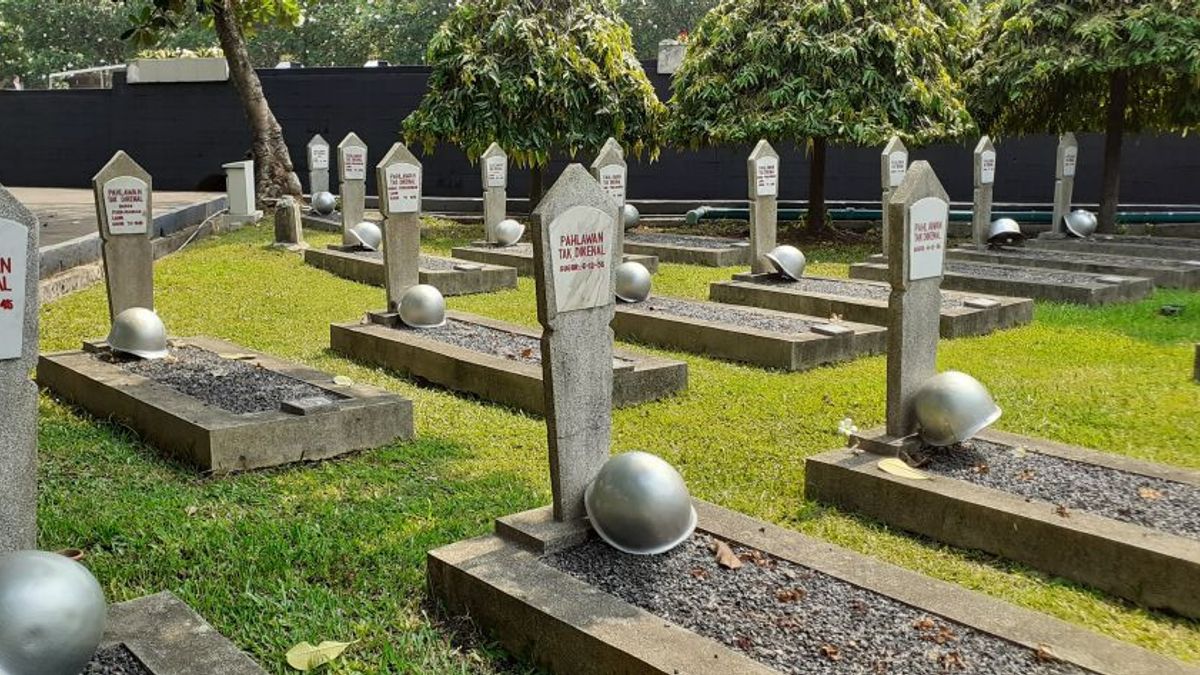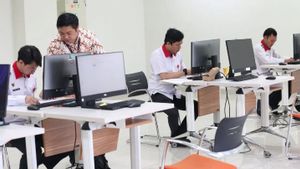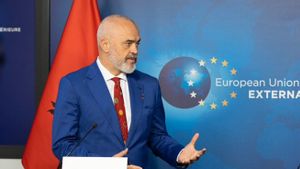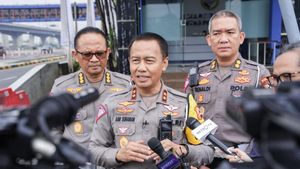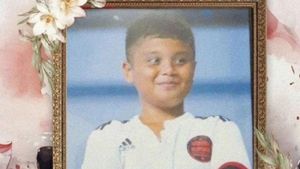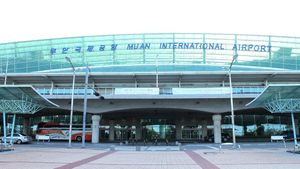In the article "The Dies of Two Generals and Another Undocumented Epic," we have already looked at the heroic tales of warriors that are not clearly recorded in history. The story behind the names that really deserve to be appointed as national heroes. Indeed, what is the mechanism for determining the title of national hero in this country? What advantage does a national hero get? Here it is, the third article in VOI's signature series, "Becoming a National Hero."
In Indonesia, the path of a name to become a national hero is usually initiated by regional organizations. Organizations will usually submit a name to the local government, be it the regent, mayor, or governor. Later, the local government will bring the name proposal to be processed at the Ministry of Social Affairs (Kemensos).
However, before submitting to local governments, usually the proposing organizations first conduct a study and conduct a public examination. The results of public studies and tests, which must involve historians and academics or knowledgeable people, are then compiled into a journal. The journal will later be submitted to the Research and Study Team of Regional Degrees (TP2GD) to be studied. If it passes the review by TP2GD, the journal will be submitted to the local government.
"It must be reviewed by them first. After being reviewed by TP2GD and all files, including photos, the document of the struggle was verified by TP2GD, then it was proposed to the center by the governor at the Ministry of Social Affairs," said the Director General of Heroism, Pioneering, Solidarity and Social Restoration (K2RS), Ministry of Social Affairs. Bambang Sugeng when we contacted him, Tuesday, November 19.
According to Bambang, the determination of the title of national hero has actually been regulated in the legal umbrella mechanism at the Ministry of Social Affairs. The main legal umbrella of this case is Law (UU) Number 20 of 2009 concerning the Title of Service and Honor. Law 20/2009 regulates a number of requirements that must be fulfilled in every submission of a candidate for a national hero.
"In Article 25 and Article 26, there are two conditions, namely general and special conditions," said Bambang.
Referring to Law 20/2009, which is classified as a general condition, among which are potential heroes who are Indonesian citizens or people who are fighting in an area that is now the territory of the Republic of Indonesia. The name must also have moral integrity and exemplary, be of service to the nation and state, be of good behavior, and be loyal and not betray the nation and state. Another condition is that the name cannot be involved in a crime with a minimum sentence of five years.
While the special requirements, the Law mandates a number of conditions, namely:
1. Have led and carried out armed struggles or political struggles or struggles in other fields to achieve, seize, defend and fill independence and realize national unity and integrity;
2. Never give up on the enemy in struggle;
3. Doing service and struggle that lasts almost his whole life and exceeds the task he is assigned;
4. Have given birth to big ideas or thoughts that can support the development of the nation and state;
5. Have produced major works that are beneficial to the welfare of the wider community or increase the dignity of the nation;
6. has a consistent spirit and high national spirit;
7. And / or carry out struggles that have a broad reach and have a national impact.
Law 20/2009
Title-determining president
After receiving the names of national hero candidates from the local government, the Ministry of Social Affairs will carry out verification. In that stage, the Ministry of Social Affairs works with the Research and Evaluation Team for Center Degree (TP2GP) which is filled with practitioners, academics, historians, and representatives of knowledgeable institutions and communities. They are the names directly appointed by the Minister of Social Affairs. Verification is carried out in administrative cases and field observations.
"Is it true that the proposed document and the reality of the struggle concerned. Later in the field they (the team) will meet with figures, families, and find documents. TP2GP also studies history, both through museums in us and in the Netherlands," said Bambang.
In its work, TG2GP has about eight months to complete its work. The time was calculated from March when the Ministry of Social Affairs used to accept proposals to November, the time when the president used to appoint title recipient candidates.
"After that, the team held a coordination meeting to discuss each of the proposed heroes. The basis was findings in the field and findings based on historical books and available information," said Bambang.

The grandson of KHR As'ad Syamsul Arifin received the title of national hero for his grandfather (setkab.go.id)
If there are problems - issues of verification and incomplete data, for example, TP2GP will later provide recommendations to the Ministry of Social Affairs to return the data to local governments for completion. "We will return to the regions again. Only later will the regions propose again (after completion)," Bambang.
If the study and verification process is completed by the Ministry of Social Affairs, then the proposal will be followed up by the president as the final determinant for the awarding of the title of national hero. Even though it is the prerogative of the head of state, the president still has to go through discussions with the Title Council to determine the title of national hero.
Attention to national heroes
Everyone who is awarded the title of national hero will have a number of privileges. Based on Law 20/2009, national heroes are entitled to respect and appreciation. Like the commemoration of National Heroes' Day which is celebrated on November 10 every year, for example.
In addition, national heroes who have died will also be buried in the Heroes Cemetery (TMP). This tomb will be fully taken care of by the state later. "We take care of his grave. It is maintained by the state," said Bambang.

For national heroes who have not been buried in the TMP, they have the right to transfer their bodies to the TMP. The transfer will later be carried out through a state procession accommodated by the government through the Ministry of Social Affairs.
Apart from symbols of respect, every national hero or heir is entitled to compensation of IDR 50 million per year. This right is regulated in Presidential Regulation (Perpres) Number 78 of 2018.
Unfortunately, when asked whether this figure could increase or not, Bambang answered: Oh, no. Yes, that much. If there is an increase, the Perpres will be changed. We're trying too. However, if there is an increase, you must change the Presidential Decree.
Next article: "The Regime Line and Its National Heroes"
The English, Chinese, Japanese, Arabic, and French versions are automatically generated by the AI. So there may still be inaccuracies in translating, please always see Indonesian as our main language. (system supported by DigitalSiber.id)
